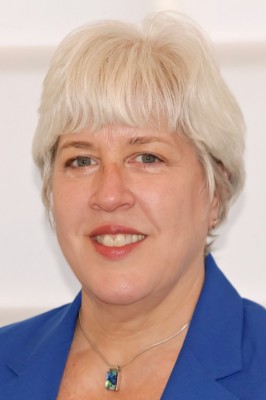Beverly Younger on Social Workers In the Business World

The roles social workers fulfill are always changing, and a great example of this is their greater presence in the world of business. There is more crossover than ever before, and the MSW@USC prepares students to take on these new challenges through its Social Work and Business in a Global Society concentration. This course of study is designed to enable Master of Social Work students to venture beyond nonprofits and effect positive change in the business environment.
We talked to MSW@USC Clinical Associate Professor Beverly Younger to gain a deeper understanding of how this concentration trains a new breed of social worker. Below, Beverly discusses what makes the concentration so unique, the roots of her passion for creating organizational change, and the makeup of an ideal student.
Q: At its essence, what is the Social Work and Business in a Global Society concentration about?
A: The concentration gives students the knowledge, skills and abilities to promote, design and implement business practices that create humane work environments and well-being both inside and outside of the organization. Students gain the skills needed to create positive change in complex business environments, which may include nonprofits and government settings.
The curriculum crosses system levels by offering opportunities to explore each level. At the individual and family level, the focus falls on how to help employees manage their work-life balance and mental health needs. At the work team level, students learn how to increase collaboration, reduce conflict and increase effectiveness. At the organizational level, the focus shifts to designing programs that promote employee wellness and engagement.
Lastly, one of the most important aspects is developing one’s professional self, gaining confidence to take a leadership role in creating new ways of relating within organizations.
Q: Why is the Social Work and Business in a Global Society concentration your personal passion?
A: I have found, over the years, that I am a perpetual Pollyanna, a fictional character who inspired those around her to “play the game well.” I was drawn to enter the employee assistance field during my MSW program, interning at a factory and applying social work practices to support employees. I helped them deal with substance abuse and addiction, depression or other mental illnesses, or even domestic violence, so they could get appropriate help and hang on to their jobs.
Over time, I saw that it was not enough to focus on people struggling with personal concerns. We need to acknowledge that the organization, its policies, procedures, system design and internal culture also impact employee well-being.
In our concentration classes, we give students the tools to become organizational change agents, partnering with proactive businesses to create positive working environments that improve their desired outcomes. We emphasize the power that organizations have to directly impact the world around them through their business practices.
Michael Porter, a management researcher, notes that businesses can create products, services and outcomes that can contribute to solving social problems. We agree with this viewpoint and seek to activate the capacity of businesses to be important contributors to social solutions.
Q: Who is the ideal student for the Social Work and Business in a Global Society concentration?
A: The ideal students are students who have witnessed the effects of work environments on individuals, both negative and positive, and understand that organizations can be designed to function in a way that takes well-being into consideration. Some of our students are a little older, with some of their own work experiences. In one case, a student that I will call Tom told the story of witnessing a manager who berated his employees and created a high-stress, negative environment. Tom was so impacted by this experience that he decided to enroll in the concentration specifically because he knew that there must be a better way to lead employees.
Many of our students are naturally big-system thinkers, whose brains think multidimensionally and want to create solutions that require complex analysis.
Generally, all of our students are adventurers who are not afraid to go where others choose not to go. They take the nontraditional path, making a difference in how we work and live by encouraging businesses to invest in the well-being of employees and the communities with which they interact.


